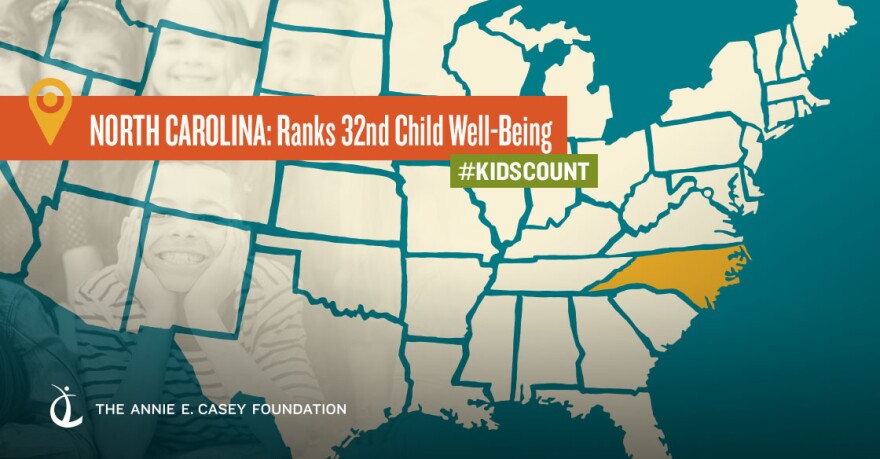A new report on the well-being of children found improvements across many measures for kids in North Carolina. The 2018 Kids County Data Book ranks North Carolina 32nd in overall child well-being in comparison to other states, with the state rising one place in the rankings in each of the past three years. The latest report found that there were fewer children in poverty, higher graduation rates and fewer teens giving birth in the state in 2016 as compared to 2010.
Those measures showed some of the highest gains across 16 indicators of childhood well-being, but the most consistent area of improvement was economic well-being. The percentage of children in the state whose parents lack secure employment or affordable housing dropped, as did the number of teens who are neither in school nor working.
"We are seeing some key economic indicators improving as the economy improves, and that's not too surprising," said Rob Thompson, a representative of NC Child, a child advocacy group.
However, Thompson says that while many North Carolinians are experiencing economic recovery since the recession, the benefits are not reaching all kids. And while the poverty rate has gone down both statewide and nationally, it has not yet dropped to pre-recession levels.
"At the same time, the number of kids living in concentrated poverty has actually increased some," Thompson said, pointing to rural areas of northeastern and southeastern North Carolina.
Statewide, 13 percent of kids now live in areas of concentrated poverty, defined as census tracts with poverty rates of at least 30 percent. Meanwhile, the overall percent of children living in poverty - defined as an income below $24,339 for a family of two adults and two children - declined statewide from a high of 26 percent in 2011 to 22 percent in 2016.
The Annie E. Casey Foundation, which put out the report, also warns that a possible undercount in the 2020 Census could threaten funding for programs that serve poor kids. Demographers are predicting a possible undercount due to new questions on the Census that ask about an individual's citizenship. Experts warn that immigrant communities may not respond to the Census out of fear of retaliation against undocumented residents. That could disproportionately affect state and federal funding for programs for all disadvantaged children in counties with larger immigrant populations.
Read the full 2018 Kids Count Data Book North Carolina profile here.










